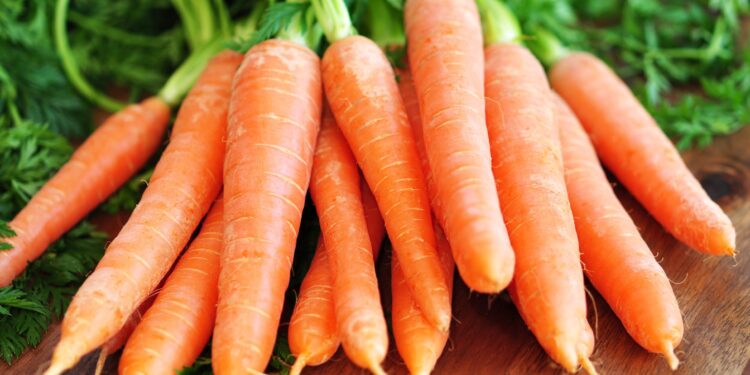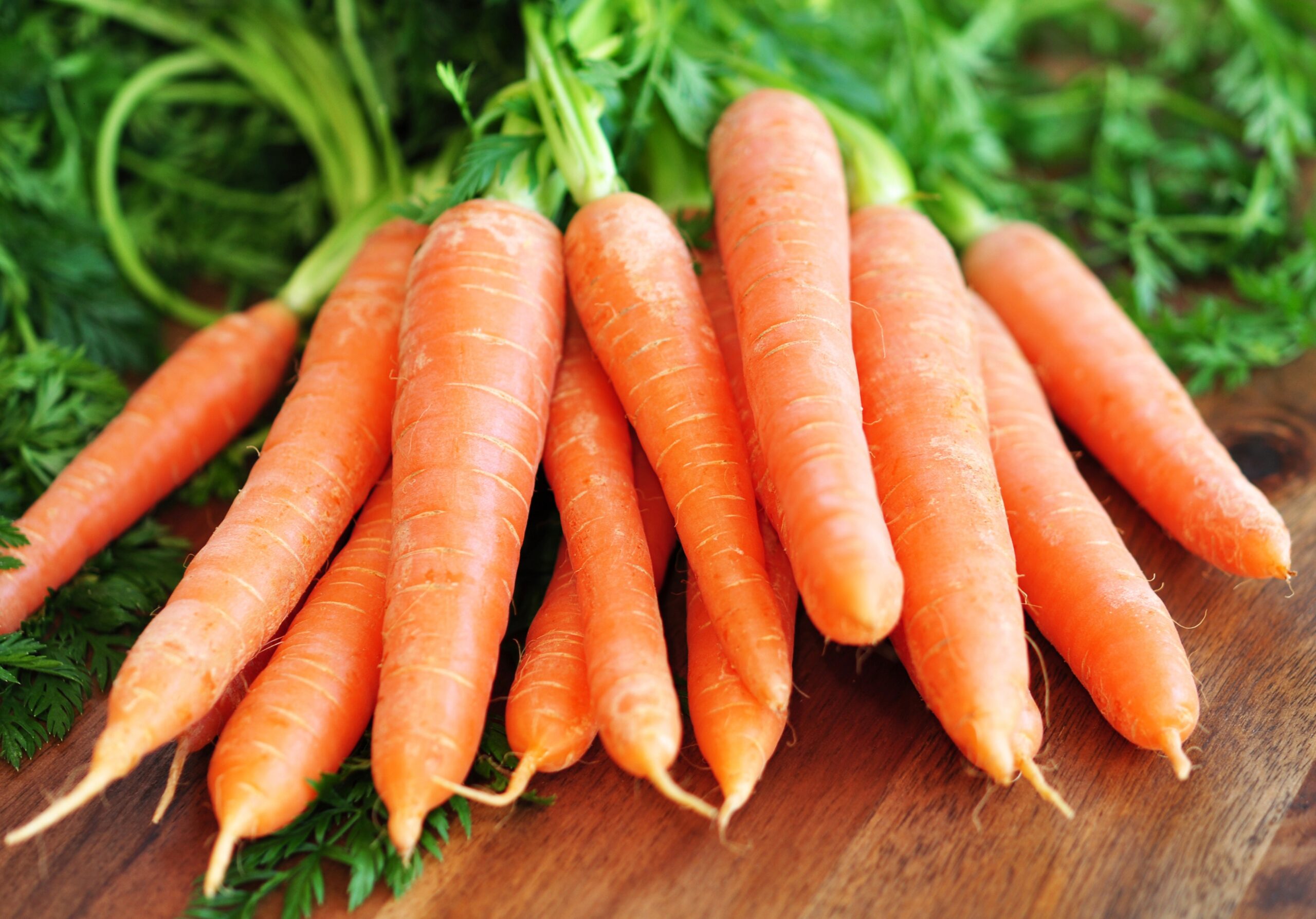
–
Protect the blood vessels with beta-carotene?
Beta-carotene (provitamin A) is a natural component in numerous types of fruit and vegetables. Caritonoids are assigned a protective function against cardiovascular diseases. A study by researchers from the USA helps to better understand the effect of beta-carotene on the cardiovascular system.
Beta-carotene is found naturally in vegetables and fruits, especially carrots, spinach, red peppers, apricots and mangoes. It is also approved as a food additive and is used as a color in food production. Beta-carotene is said to protect blood vessels, among other things.
Healthy carrots
Carrots are healthy because they are rich in carotenoids such as beta-carotene. With the help of an enzyme, beta-carotene is converted into vitamin A in the human body, explains the Federal Center for Nutrition (BZfE) in a current issue Message.
Scientists from the University of Illinois (USA) suspect that this lowers the level of “bad” cholesterol in the blood and thus the risk of cardiovascular diseases. However, the enzyme is not equally active in everyone.
Genetic variation determines the enzyme’s activity
Cardiovascular diseases are often due to the progressive accumulation of fat and cholesterol on the inner walls of the arteries (atherosclerosis or atherosclerosis or hardening of the arteries).
Studies have shown that the conversion of beta-carotene into vitamin A reduces the “bad” LDL (low-density lipoprotein) cholesterol in the blood and can thus protect against heart attacks and strokes.
In order to better understand the effect of beta-carotene on the cardiovascular system, the researchers from the USA carried out a study with almost 500 young adults between the ages of 18 and 25.
The test subjects gave information about their eating habits and gave blood samples to determine their cholesterol levels. According to the BZfE, beta-carotene is converted into vitamin A with the help of the enzyme beta-carotene oxygenase 1 (BCO1). Genetic variation determines how active this enzyme is.
The study found a connection between enzyme activity and the level of “bad” cholesterol. “People who had a genetic variant that makes the enzyme BCO1 more active had less cholesterol in their blood,” explains study author Jaume Amengual.
Less damage to the blood vessels
But does beta-carotene also have a long-term effect on the cardiovascular system? To answer this question, the researchers carried out a second study on mice.
When the animals were fed beta-carotene-enriched feed, they had lower cholesterol levels and developed less deposits and damage in the arteries. This suggests that they were better protected from cardiovascular disease than mice that did not ingest beta-carotene.
The study results were published in the specialist journal “The Journal of Nutrition” released.
Half of the population affected
To date, high levels of beta-carotene in the blood have been associated with health benefits. However, it could also be a sign of a poorly active BCO1 enzyme that is not sufficiently converting the beta-carotene in the diet into vitamin A.
According to Amengual, up to fifty percent of the population have the less active variant of the enzyme. This means that your body is slower to produce vitamin A from plant sources.
These people may need other sources of vitamin A, such as milk and cheese, to meet their needs. However, more studies are needed to confirm the results and to explore the underlying molecular mechanisms. (ad)
Author and source information
This text corresponds to the requirements of the medical literature, medical guidelines and current studies and has been checked by medical professionals.
–
Swell:
- Federal Center for Nutrition: Does beta-carotene protect blood vessels ?, (Access: January 17, 2021), Federal Center for Nutrition
- Jaume Amengual, Johana Coronel, Courtney Marques, Celia Aradillas-García, Juan Manuel Vargas Morales, Flavia C D Andrade, John W Erdman, Jr, Margarita Teran-Garcia: β-Carotene Oxygenase 1 Activity Modulates Circulating Cholesterol Concentrations in Mice and Humans; in: The Journal of Nutrition, (veröffentlicht online: 20.05.2020 sowie in: Volume 150, Issue 8, August 2020, Pages 2023–2030), The Journal of Nutrition
–
–
–
Important NOTE:
This article is for general guidance only and should not be used for self-diagnosis or self-treatment. He can not substitute a visit at the doctor.
–
– .


